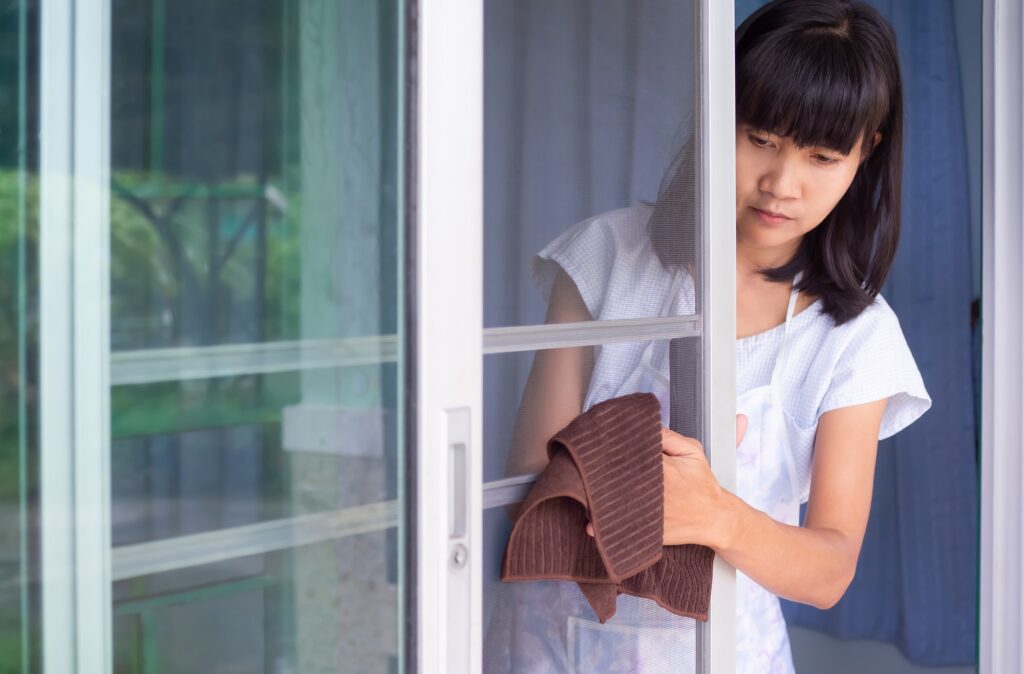Yes, it is indeed possible to replace the glass in a sliding door without having to replace the door. Typically there’s no need to take out the door itself to swap out the glass. The process usually involves finding the glazing bead that encircles the door frame measuring the existing glass pane and then having a glass panel custom-cut to fit into the opening. However, it’s important to keep in mind that replacing the glass in a sliding door can be quite complex and costly. It may be advisable to seek help to ensure that the replacement is done properly and safely.

FAQ about: Sliding Door Glass Replacement and Repair
Can you just replace the glass in a sliding door?
Yes, it is indeed possible to replace the glass in a sliding door without having to replace the door.
Typically there’s no need to take out the door itself to swap out the glass.
The process usually involves finding the glazing bead that encircles the door frame measuring the existing glass pane and then having a glass panel custom-cut to fit into the opening.
However, it’s important to keep in mind that replacing the glass in a sliding door can be quite complex and costly. It may be advisable to seek help to ensure that the replacement is done properly and safely.
What tools are necessary for replacing the glass in a sliding door?
What tools are needed to replace the glass in a sliding door?
Some of the tools required for replacing the glass in a sliding door include:
- Measuring tape,
- Level
- Both Phillips head and flathead screwdrivers
- Pliers
- Razor blade
- Electric drill
- Pry bar or crowbar
- Rubber mallet or hammer with rubber padding on one side.
- You may also need types of saws like saws or reciprocating saws.
Additionally, you might require 3-inch No. 8 wood screws, for fastening purposes along with expanding foam sealant specifically designed for doors and windows.
Lastly, weatherproof silicone window and door caulk will also come in handy.
Safety gear, like safety goggles, gloves, and appropriate footwear is also advised when doing repairs.
If you don’t have all the tools, you might consider renting them from a hardware store.
Which type of glass is commonly used in sliding doors?
The majority of sliding doors are made with tempered glass, which is a type of safety glass.
Tempered glass undergoes a treatment to enhance its strength and break into less dangerous pieces if it shatters. This makes it safer and more durable for use in sliding door applications.
What advantages does tempered glass offer for sliding doors?
Using tempered glass in sliding doors provides benefits:
Safety;
Tempered glass prioritizes safety by being significantly stronger than glass and breaking into pieces that are less likely to cause harm if broken.
Durability;
Tempered glass can withstand winds direct impacts and minor blows making it particularly useful for protecting against storm damage. It is four times stronger than annealed glass enhancing the overall durability of sliding doors.
Versatility;
Tempered glass offers versatility as it can be utilized in applications such, as sliding doors, windows, shower screens, skylights and more.
What is the difference between tempered glass and laminated glass?
Tempered glass and laminated glass have some differences that set them apart;
Breakage Pattern;
When tempered glass breaks it forms pieces reducing the risk of injury. On the hand laminated glass may crack upon impact. Remains intact thanks, to its interlayer.
Strength and Safety;
Tempered glass is stronger than glass. Is often chosen for its enhanced breakage resistance. On the hand while not as strong as tempered glass laminated glass offers advantages such as UV resistance added security and soundproofing.
Manufacturing Process;
Tempered glass is created by heat-treating a piece of glass to increase its strength. In contrast, laminated glass consists of layers with an interlayer that holds it together when broken.
Versatility;
In terms of design and creative applications tempered glass allows for versatility since it doesn’t have an interlayer. Laminated glass has some limitations in design flexibility due to its construction.
These distinctions make both types of glasses suitable, for parts of your home based on their characteristics.
To sum it up
Tempered glass is renowned for its durability and ability to withstand breaking, whereas laminated glass provides advantages, like protection, against UV rays, enhanced security, and noise reduction.

